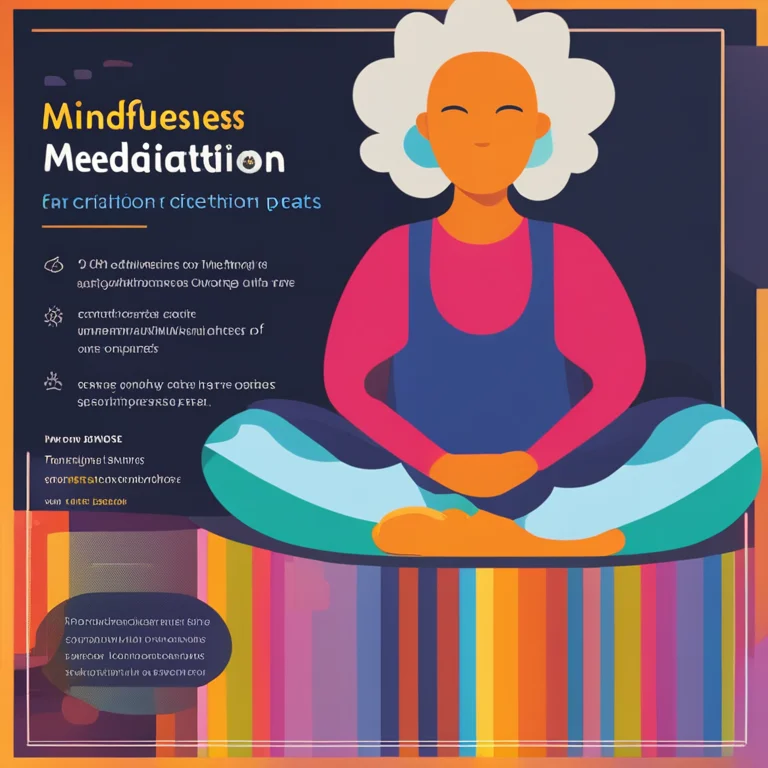
Mindful Moments for High Schoolers
Discover the benefits of mindfulness meditation for high school students - a tool for stress relief, focus, and self-awareness.
article by Hina Kurosawa
Stress and the Student Mind
High school students today face an unprecedented level of stress, with academic pressures, social dynamics, and future uncertainties taking a constant toll. The bustling pace of school life often leaves little room for reflection and relaxation. Mindfulness meditation offers a respite from this whirlwind, providing students with techniques to cultivate inner peace and mental clarity. Improved concentration and reduced anxiety are just some of the proven benefits, making meditation an essential practice in the modern student's toolkit.

Meditation Basics
Mindfulness meditation is a process of focusing one's attention on the present moment, while calmly acknowledging and accepting one's feelings, thoughts, and bodily sensations. This practice can start with as little as five minutes a day, and doesn't require any special equipment. By simply being aware of their breath, high schoolers can engage in this form of meditation anywhere, from a quiet classroom corner to the comfort of their bedroom, making it a versatile tool for managing their day-to-day stress.

Mindfulness in Curriculum
Recognizing the benefits, an increasing number of schools are incorporating mindfulness exercises into their curriculum. These activities are especially useful during exam seasons, helping students maintain a clear mind and manage exam-related stress. Mindfulness clubs and after-school programs also offer students a community where they can practice together, fostering an environment of support that further enhances the benefits of the meditation practices.

Cognitive Benefits
Research has shown that mindfulness meditation can improve cognitive function, which is particularly relevant for students. Regular practice enhances memory, attention span, and processing speeds—all critical elements for academic success. Moreover, by promoting a growth mindset and reducing the prevalence of harmful perfectionist tendencies, meditation can lead to healthier learning habits and better academic performance.

Emotional Resilience
A high school student's emotional landscape can often be tumultuous. Mindfulness meditation helps in regulating emotions, building resilience against stressors. With consistent practice, students learn to approach challenges with a balanced perspective, allowing them to navigate the complexities of friendships, family dynamics, and their burgeoning sense of identity with greater ease and confidence.
Long-Term Advantages
The benefits of mindfulness meditation extend well beyond the high school years. Students who practice mindfulness lay the foundation for a balanced adult life, equipped with tools to handle the pressures of higher education and eventually, the professional world. By instilling these habits early, we set the stage for a lifetime of well-being, self-awareness, and emotional intelligence.
Getting Started
For students interested in starting mindfulness meditation, the journey begins with simple steps. Apps and online resources tailored for their age group can offer guided meditations and tips on how to integrate mindfulness into daily routines. Schools might provide resources or connect students with local mindfulness practitioners for workshops or sessions. The key is to start small, remain consistent, and approach the practice with patience and openness.
Published: 1/9/2024
Modified: 1/9/2024
More predictions
Come back here soon to learn more about yourself and your future


Boosting Memory with Meditation Techniques
Discover how mindfulness and meditation practices can enhance memory retention and cognitive function in our daily lives.


Delving Into Meditation Queries for Spiritual Guidance
Discover insightful meditation questions that guide your spiritual journey, foster inner clarity, and enhance your metaphysical practices.


Mind Boost: Can Meditation Enhance Intelligence?
This article delves into whether meditation practices can contribute to increased intelligence, combining scientific insights and practical advice for mental enhancement.